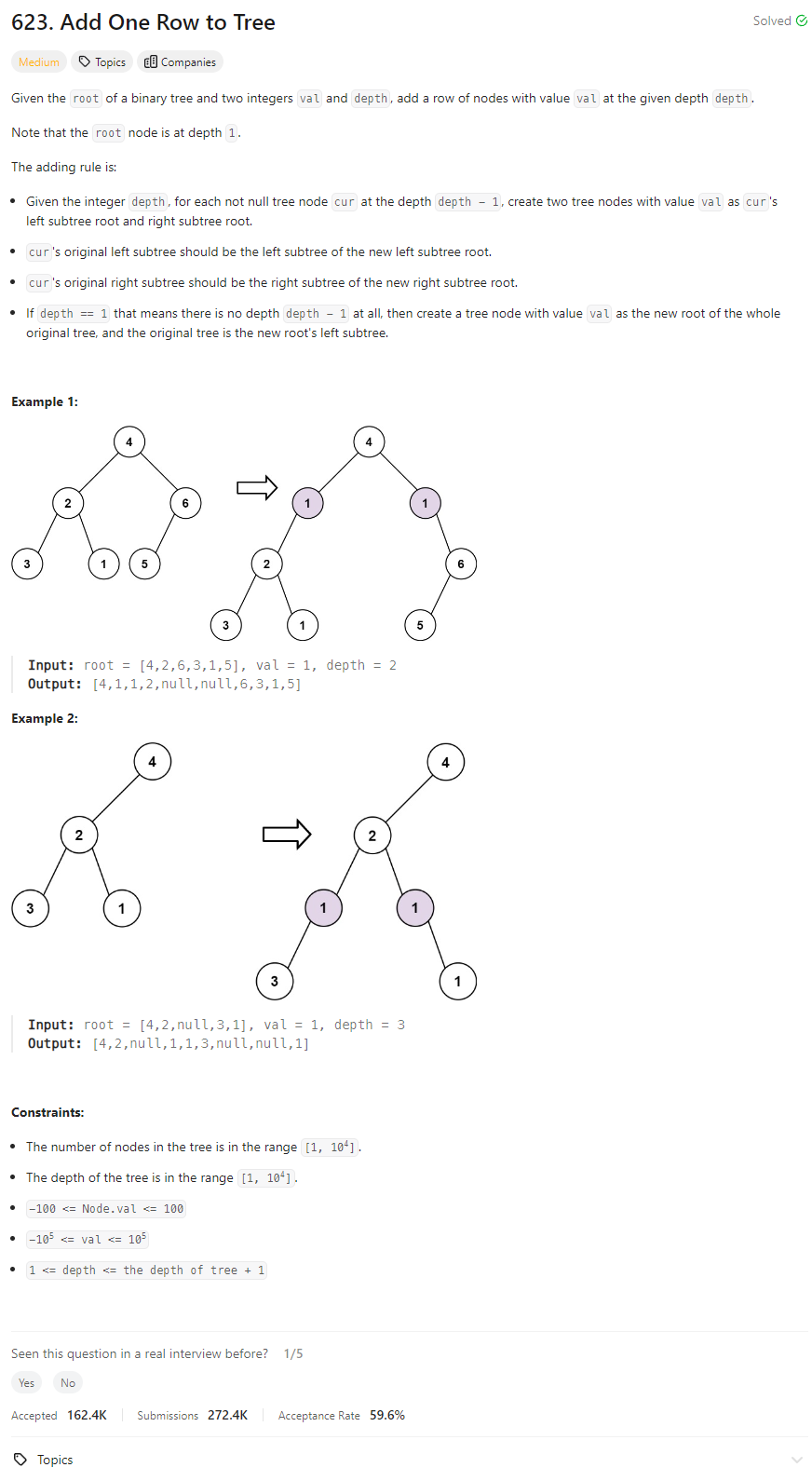Problem of The Day: Time Needed to Buy Tickets
Problem Statement

Intuition
My initial thought is to traverse the tree level by level, keeping track of the current depth. When reaching the level just before the target depth, I’ll insert new nodes with the given value as the new row.
Approach
I’ll use a queue to perform a level-order traversal of the binary tree. As I traverse each level, I’ll keep track of the current depth. When I reach the depth just before the target depth, I’ll insert new nodes with the given value as the new row.
Complexity
-
Time complexity: O(n) where n is the number of nodes in the binary tree. We need to traverse each node once.
-
Space complexity: O(m) where m is the maximum number of nodes at any level in the binary tree. In the worst case, the queue can hold all nodes at the maximum level.
Code
# Definition for a binary tree node.
# class TreeNode:
# def __init__(self, val=0, left=None, right=None):
# self.val = val
# self.left = left
# self.right = right
class Solution:
def addOneRow(self, root: Optional[TreeNode], val: int, depth: int) -> Optional[TreeNode]:
if depth == 1:
return TreeNode(val, root)
queue = deque()
queue.append([root, 1]) # curr, level
while queue:
curr, level = queue.popleft()
if level == depth - 1:
leftNode = curr.left
rightNode = curr.right
curr.left = TreeNode(val, curr.left)
curr.right = TreeNode(val, None, curr.right)
continue
if curr.left:
queue.append([curr.left, level + 1])
if curr.right:
queue.append([curr.right, level + 1])
return root